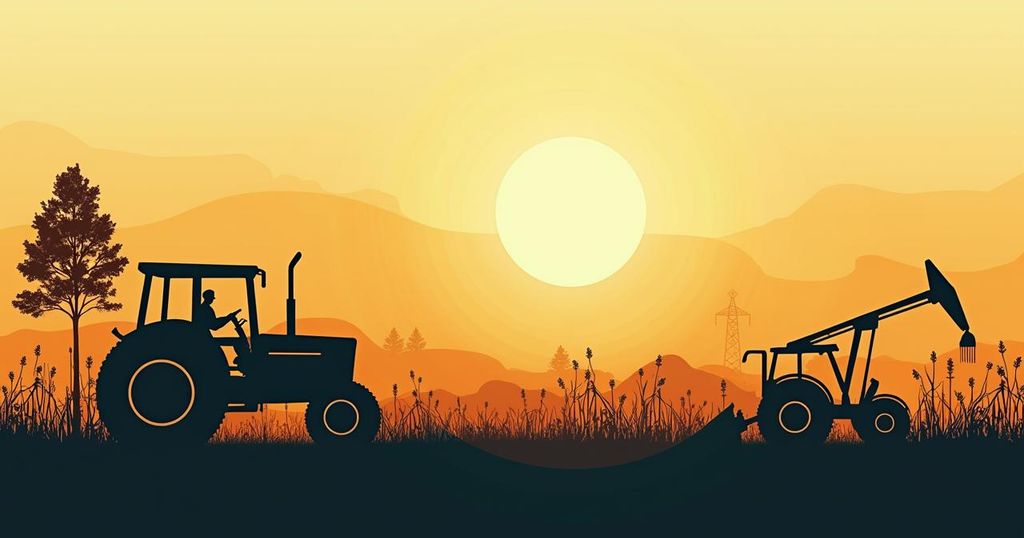Addressing Climate Change: The Development of Resilient Seed Varieties in India
As India grapples with the impacts of climate change on agriculture, scientists are developing resilient rice seed varieties to help farmers like P. Ravinder Reddy counter unpredictable weather patterns. These new seeds promise better yields, reduced water consumption, and enhanced disease resistance. With government support and research advancements, the future of farming in India may become more sustainable despite the increasing challenges posed by climate change.
India faces significant challenges as climate change intensifies, affecting agricultural productivity, particularly in rice and wheat production. In the village of Rayanpet, unpredictable weather patterns have disrupted traditional farming practices, discouraging the confidence of farmers like P. Ravinder Reddy who has resorted to experimenting with climate-resilient rice seed varieties. These seeds demonstrate improved yields, require less water, and exhibit greater resistance to diseases, offering hope for farmers grappling with the consequences of climate change. Research organizations across India have long been focused on the development of tougher seeds to cope with rising temperatures, erratic rainfall, and pest invasions. According to a United Nations report, ongoing hunger crises underscore the urgency of developing resilient crops capable of producing reliable yields. India’s significant agricultural sector—home to nearly 120 million farmers—has seen initiatives aimed at enhancing the resilience of crops through innovative breeding, such as the release of 109 new climate-resilient seeds earlier this year by Prime Minister Narendra Modi. In addition to breeding efforts, the government plans to plant climate-resilient seeds on a quarter of paddy fields by the next winter crop season, ensuring comprehensive integration of new agricultural technologies. Scientists are developing seeds designed to withstand multiple environmental stressors, thereby not only stabilizing crop yields but also improving nutritional content. Equally critical is the effective dissemination of information about these new seeds and ensuring farmers have access to them. In conclusion, while the pursuit of resilient seed varieties is crucial for sustaining food production in India, it is equally vital to establish robust systems to educate farmers on their use, along with ensuring affordable access to these resources. As Reddy prepares to plant his climate-resilient seeds, he remains hopeful for a more stable agricultural future that could protect farmers against the unpredictable whims of climate change.
The article discusses how India, as one of the largest producers of rice and wheat, is increasingly pressured by climate change to innovate and adapt its agricultural practices. Rising temperatures, erratic rainfall, and increased pest infestations threaten crop yields, making it imperative for scientists to develop resilient seed varieties. The narrative highlights the plight of farmers who must cope with changing weather patterns and the ongoing efforts by research organizations and government initiatives to address these challenges through the introduction of climate-resilient crops. Moreover, it emphasizes the importance of ensuring that farmers not only have access to new seed varieties but also receive the necessary training and support to utilize them effectively.
In summary, India’s agricultural sector faces mounting pressures from climate change, necessitating the development of resilient seed varieties to maintain food security. Farmers like P. Ravinder Reddy are beginning to embrace these advancements, which are pivotal in adapting to unpredictable environmental conditions. The government and research organizations play a crucial role in facilitating the dissemination and integration of these seeds into the farming community. However, for these measures to be effective, a comprehensive support system is essential to ensure that all farmers can benefit from these innovations.
Original Source: abcnews.go.com




Post Comment